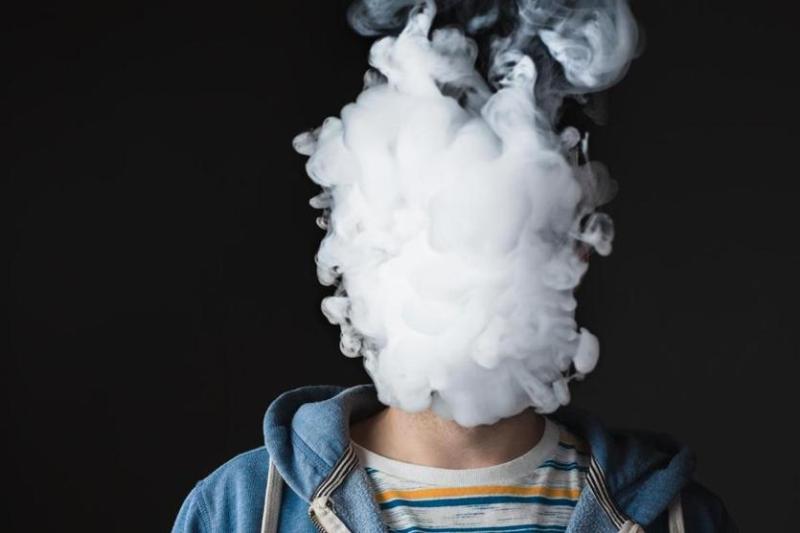Harvard study raises concern about contaminated e-cigarettes



That e-cigarette you’re puffing on could be contaminated, according to a newly released study from the Harvard T.H. Chan School of Public Health.
The study, entitled “Endotoxin and (1®3)-b-D-glucan Contamination in Electronic Cigarette Products Sold in the US,” was published Wednesday in Environmental Health Perspectives.
The study “examined 75 popular e-cigarette products — cartridges (single use) and e-liquids (refillable material) — [and] found that 27 percent contained traces of endotoxin, a microbial agent found on Gram-negative bacteria, and that 81 percent contained traces of glucan, which is found in the cell walls of most fungi,” the Chan School said in a statement. The school said exposure “to these microbial toxins has been associated with myriad health problems in humans, including asthma, reduced lung function, and inflammation.”
David Christiani, the Elkan Blout Professor of Environmental Genetics at the Chan school and senior author of the study, said in the statement that the findings are concerning.
“Airborne Gram-negative bacterial endotoxin and fungal-derived glucans have been shown to cause acute and chronic respiratory effects in occupational and environmental settings,” Christiani said. “Finding these toxins in e-cigarette products adds to the growing concerns about the potential for adverse respiratory effects in users.”
His comments were echoed by Mi-Sun Lee, a Chan school research fellow and lead author of the paper.
“In addition to inhaling harmful chemicals, e-cig users could also be exposed to biological contaminants like endotoxin and glucan,” Lee said in the statement. “These new findings should be considered when developing regulatory policies for e-cigarettes.”
For the study published Wednesday, the Chan school said, “researchers selected 37 e-cigarette cartridges, sometimes referred to as ‘cigalikes,’ and 38 e-liquid products, which can be used to refill certain cartridges, from the 10 top-selling US brands. The products were classified into four different flavor categories: tobacco, menthol, fruit, and other. All of the products were then screened for the presence of endotoxin and glucan.”
The findings, according to the Chan school, “showed that 17 of 75 products (23 percent) contained detectable concentrations of endotoxin and that 61 of 75 products (81 percent) contained detectable concentrations of glucan.”



Is there anything out there.....ACTUALLY good for you ?
Maybe pass a "Law" making it "Illegal" to sell underage High Schoolers Vape stuff ?
of Course.... "Laws" only work ….. if enforced .
well, it is, after all, an alternative to smoking actual cigarettes and cigars.
So one can assume, you can just pick your own poison and accept the risks.
I would think that long term usage would not be good for you. But in truth it will most likely be one of those products that forty years from now they will say oops.
A few months ago, I watched a program where pulmonary specialists were discussing the increased use of e-cigs, especially by pre-teens and teens, and "popcorn lung" being linked to smoking e-cigs. It's not the same as COPD, asthma, and emphysema but nonetheless causes pulmonary damage. JUUL still insists that its product doesn't cause this.
More about vaping: